SGGP
The masterpiece poem Ông đồ (The Scholar) brought Vũ Đình Liên (pictured) to the forefront of the New Poetry movement, sometimes overshadowing the rest of his rich literary career, especially the poems expressing his deep love for humanity, including the touching story “Ngữ nữ cầu Trò” (The prostitute at the bridge) which is little known.
People's Teacher, Poet Vu Dinh Lien (1913-1996) is a unique case in the Vietnamese poetry scene. Apart from two research works, Draft History of Vietnamese Literature (co-authored with Le Quy Don group) and Nguyen Dinh Chieu - Patriotic Scholar, both published in 1957, in his 93 years of life and 80 years of writing poetry, he only published one collection of poems, Eyes, in 1975.
When poet Vu Dinh Lien passed away on January 18, 1996, the work Baudelaire's Poetry, which he had researched and translated for 40 years, was published and awarded by the Vietnam Writers' Association in 1996. Poet Vu Dinh Lien's posthumous work also includes a handwritten collection of poems, The Courtesan of Cau Tro, which was carefully prepared for nearly 20 years but has yet to be published.
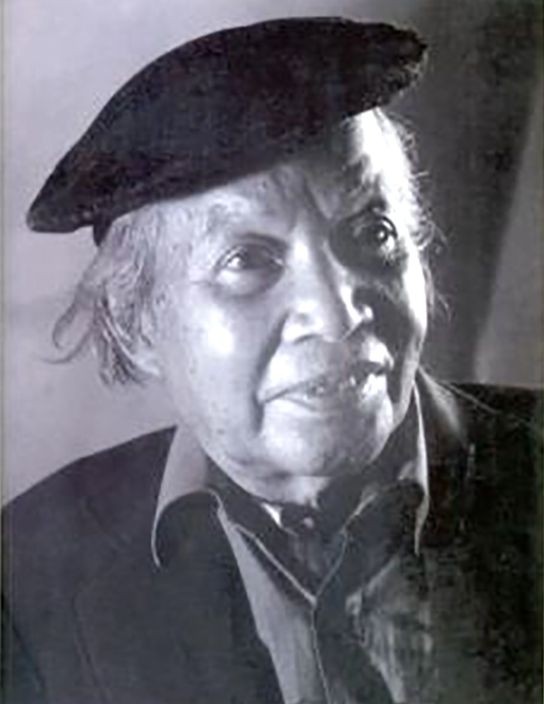 |
People's Teacher, Poet Vu Dinh Lien (1913-1996) |
The author Ông đồ loved poetry and wrote poetry very early, since he was 13 years old. He once "secretly" mocked himself: "Since the age of thirteen, I have known Truyện Kiều/ The poem is a talented and fateful image/ Tú Xương was a close friend in the past/ Công Trứ wanted to climb a pine tree...".
Vu Dinh Lien was also famous for his unconditional love for others, and there are many anecdotes about it in the literary world of Hanoi. He always loved his friends and colleagues and took care of their children and grandchildren when they were in trouble. His heart was open to the unfortunate and suffering. His story with the crazy woman in Luu Xa, Thai Nguyen and the prostitute in Cau Tro, Son Tay were passed down and inspired him to write touching poems.
During his lifetime, during our conversations at the Huong Lua attic, at the corner of Ba Trieu - Tran Nhan Ton streets in the middle of Hanoi , poet Vu Dinh Lien often told the story of the courtesan at Cau Tro with compassion. According to him, Cau Tro was built in 1697 in Gia Hoa village, Phuc Hoa commune, Phuc Tho district, Son Tay province (now part of Hanoi ).
There are two legends about this ancient bridge. The first is the story of the goddess Princess Y Duc, daughter of King Hung Chieu Vuong, who protected King Tran Thanh Tong in defeating the invading Mongols. The second is the story of the talented and ill-fated courtesan, who haunted Vu Dinh Lien, enchanted by the sound of the zither and singing that echoed in his mind, giving him the inspiration to write sympathetic poems.
He recalled: “At the end of 1972, my family and I evacuated to Phuc Tho district, Son Tay province. One day, returning from the town, I and a local friend crossed a cement bridge, which was quite long. Asking my friend, I learned that this was the Tro bridge and the origin of its name. In the past, there was a tro girl who went to sing at night, and early in the morning, when she was returning across a small stream, she encountered wind and rain, caught a cold and died. The villagers buried her on the stream bank and built a temple to worship her.”
Although the friend told the story indifferently, it left in the poet Vu Dinh Lien's heart a lingering pity, like a sharp thorn deeply embedded in his flesh that could not be removed.
The “modern scholar” thought of the pitiful fate of poor women, with a little beauty and talent, who had to use their talent and beauty to entertain the rich and powerful, and in the end had to die tragically like Dam Tien in the Tale of Kieu by poet Nguyen Du or Fantine in Les Miserables by French writer Victor Hugo. And after half a year of struggling with the heartbreaking story of the ill-fated courtesan, poet Vu Dinh Lien wrote the poem Cau Tro:
“On the way back to Hanoi, passing the Tro bridge/ Listening to the stories of the past, my heart aches/ Who was drunk at the party that night and made me lose my temper/ The morning dew soaked the person in the falling rain/ Two pieces of clothing, unable to stop the cold/ Half a life of wandering, flowers fell in a field/ If Nguyen Du still had tears in his pen/ A few more sad songs would add to the sorrow”.
Towards the end of 1974, after a conversation with young writers, poet Vu Dinh Lien returned to his room and lay awake, thinking about a deceased friend and thinking of the story of the singing girl Cau Tro. He thought that in the other world, his friend might meet a talented courtesan and he was inspired to write a poem to his friend that was very... ghostly.
The poet recalls: “I had just put down my pen when suddenly I felt a strange excitement in my heart as if something unusual was about to happen. A cold wind rose from the North, blowing through the door of the room, carrying with it the sound of people, both far and near, reciting two poems as if coming from some gloomy sky. I hurriedly wrote down the two poems and was surprised and horrified to see that the first poem exactly rhymed with my poem Cau Tro”. The poem is as follows:
“A roof has been swaying for years/ Beside the bridge, exposed to the sun and rain/ A hundred years of heavy resentment/ Half a lifetime of cold love and separation/ When the sky was new, my soul felt sorry for the country/ The old story of a broken branch, a traveler who loved flowers/ The underworld awakens to the warmth of the yang/ My heart begins to melt away hatred and sing.”
And when poet Vu Dinh Lien copied the last two lines of the second poem "Thank you for your kindness, I know what to do/ The jade beat adds a golden beat", he suddenly saw under the dim light of the night the image of a graceful courtesan sitting on a flower mat, gently lifting two mallets to start a half-sad, half-happy beat, like the sound of tears falling on a silk dress, the sound of jade falling on a golden tray... A poetic space that is so haunting!
Poet Vu Dinh Lien was originally from Hai Duong and was born in Hanoi. He passed the Baccalaureate exam at Buoi School in 1932. He studied Law at the University of Law and taught at private schools to earn a living, wrote for newspapers, wrote poetry, and then founded Tinh Hoa newspaper.
During the 9 years of fighting against the French, he participated in the resistance war and then returned to teaching, holding several positions at the Ministry of Education. In 1962, he became the Head of the French Department of Hanoi Pedagogical University to train teachers to become French language experts for friendly countries.
According to him, there is a close relationship between poets and teachers: “The history of Vietnam and the world shows that many poets are also teachers. The humanity in their poems is extremely profound and beautiful.
The great poet and teacher of the nation, Nguyen Trai, confided: “A single inch of old affection/ Day and night, the waves of the winter tide roll in.” Wherever I go, I hear people say that no poet in the world speaks of love with the unique image of “the waves of the winter tide” like Nguyen Trai.
Source



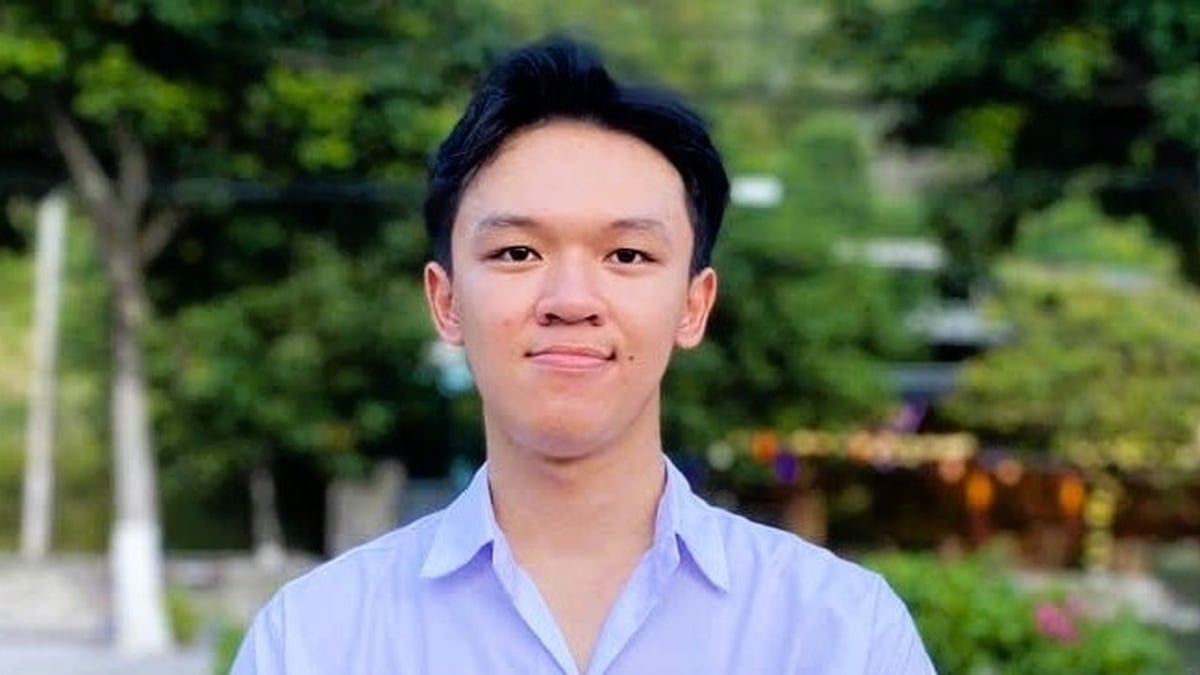

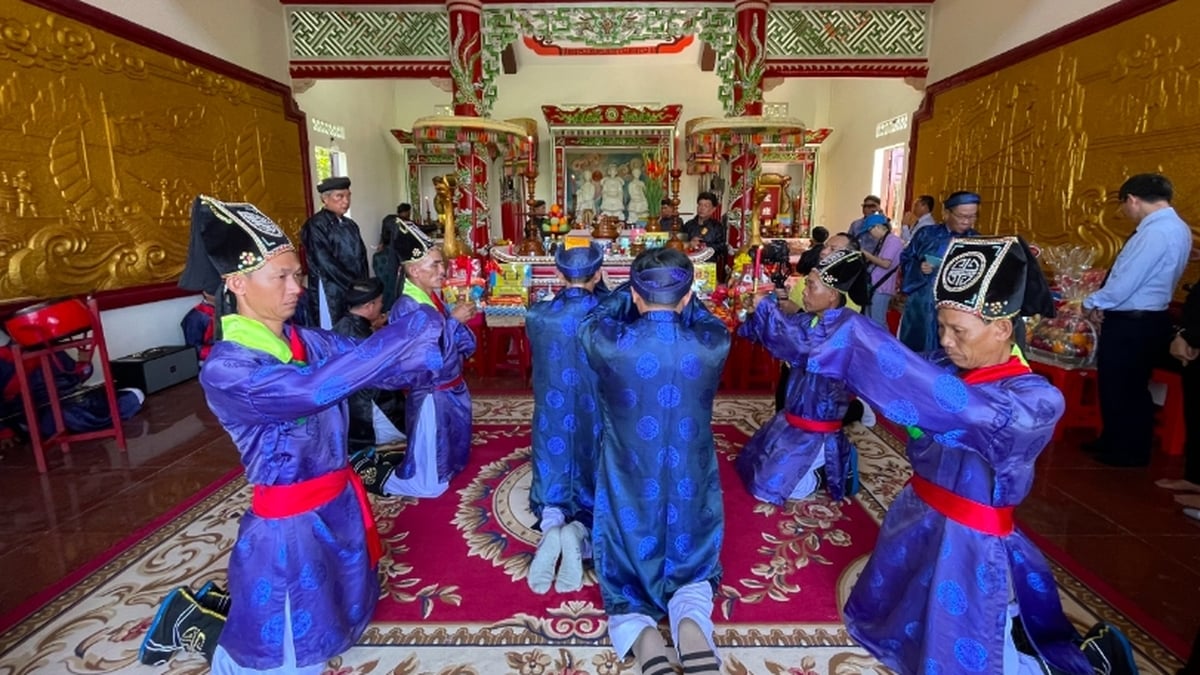
![[Photo] Signing of cooperation between ministries, branches and localities of Vietnam and Senegal](https://vphoto.vietnam.vn/thumb/1200x675/vietnam/resource/IMAGE/2025/7/24/6147c654b0ae4f2793188e982e272651)




















![[Infographic] Vietnam-Senegal traditional friendship](https://vphoto.vietnam.vn/thumb/1200x675/vietnam/resource/IMAGE/2025/7/23/4c96a604979345adb452af1d439d457b)





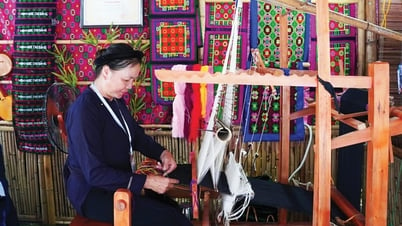

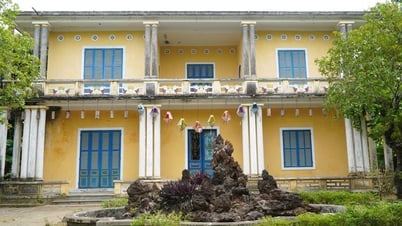

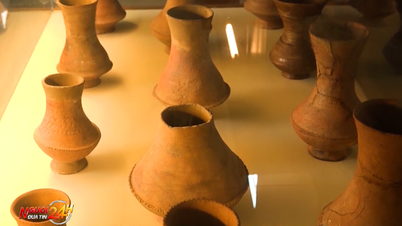






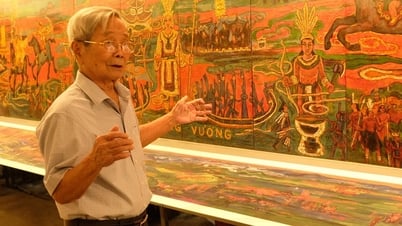

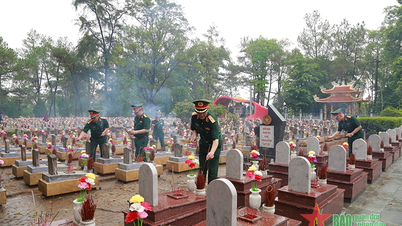












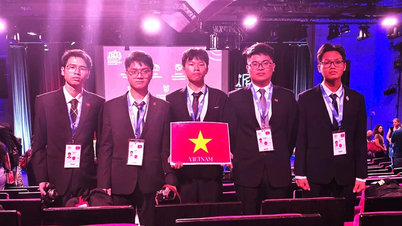







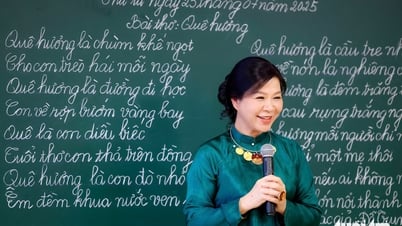






























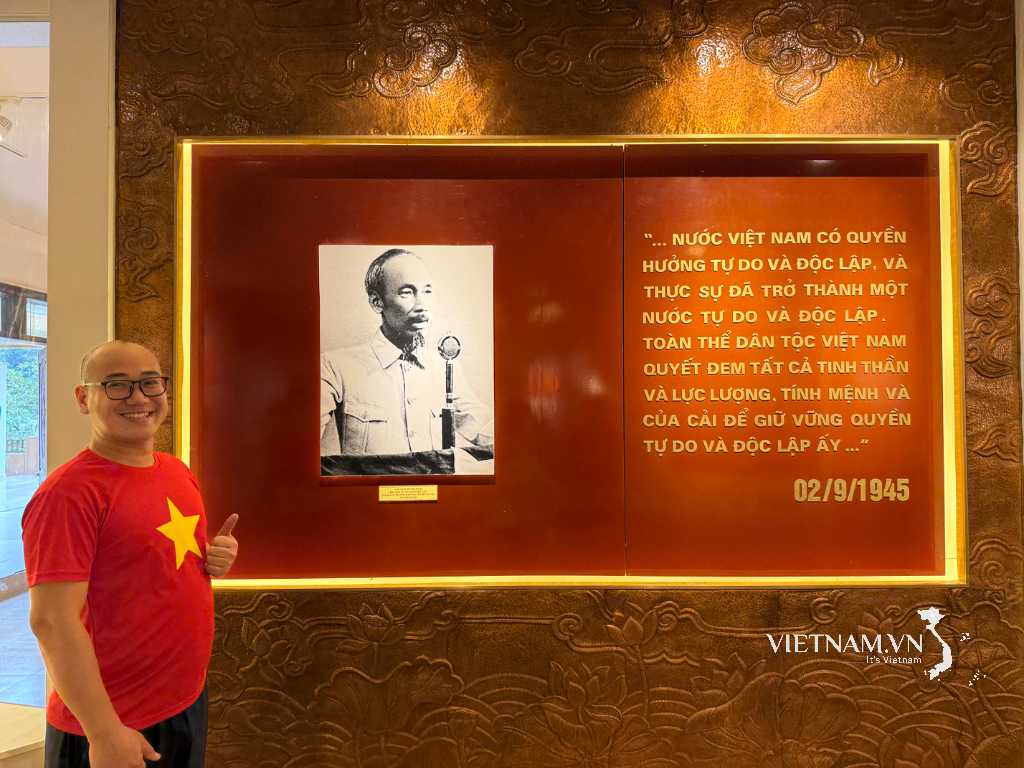

Comment (0)